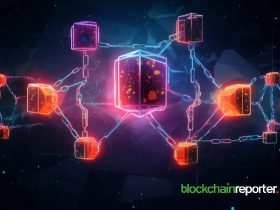OpenSea and the Seaport Working Group have released Seaport 1.6, the most recent version of the NFT marketplace protocol for the Ethereum Virtual Machine (EVM) ecosystem.
‘Seaport hooks,’ a new feature of the upgrade, is modeled around Uniswap v4 hooks. The goal of this feature is to facilitate the development of applications that increase NFTs’ utility and liquidity. By functioning as order fulfillment plugins, these hooks enable developers to easily integrate custom contracts into the Seaport protocol.
OpenSea and the Seaport Working Group are thrilled to unveil Seaport 1.6 — the latest generation of the most advanced NFT marketplace protocol in the EVM ecosystem.
Seaport 1.6 introduces a new capability enabled by the recent Ethereum Dencun upgrade called Seaport hooks 🪝.… pic.twitter.com/EsdLebCq20
— OpenSea (@opensea) March 20, 2024
Compared to its predecessor, Seaport 1.5, version 1.6 leverages the most recent Ethereum Dencun update. As a result, the platform says users will benefit from a 5% reduction in gas fees for some transactions. According to the announcement, major EVM chains are already using this deployment.
Using the Seaport hooks function, contracts can be deployed and invoked by Seaport, ensuring a smooth and efficient order execution process. This allows NFTs to adapt their properties based on purchase conditions such as price and volume and can be obtained using specific currencies or other NFTs. It also allows for the development of bonding curves and price oracles for NFTs.
You might also like: OpenSea CEO bets on use cases for NFTs, says trading volumes can be ‘misleading’
OpenSea intends to move user orders to Seaport 1.6 on Monday, March 25. This technique does not involve user interaction. Furthermore, as of Monday, April 1, only Seaport 1.6 orders will be accepted by the OpenSea Developer API. Consequently, Seaport 1.5 will be phased out over time.
In addition, OpenSea mentioned that the integration of seaport hooks will allow NFT sales to access liquidity from various on-chain sources. This integration is expected to broaden the possibilities for DeFi and NFT interoperability, bringing in features such as time-weighted average price (TWAP) oracles for the NFT sector.
“Hooks and the broader Seaport ecosystem are an invitation to the developer and creator community to push the envelope for what’s possible for NFTs, and, ideally, to enable those experiences to be natively surfaced,” Opensea wrote in the official announcement.
The update comes as the NFT market is experiencing a slump in numbers. On March 6, data from Cryptoslam revealed that OpenSea, once the top NFT marketplace, now ranks fourth in the list. The average price of a digital collectible on OpenSea also plunged as much as 22.22% at the time of the report’s publication.
While ordinals on the Bitcoin network have experienced an uptick, the price floor for Ethereum NFTs has seen a significant drop in recent months.
Read more: OpenSea CEO teases M&A interest amid NFT market shakeup







Leave a Reply